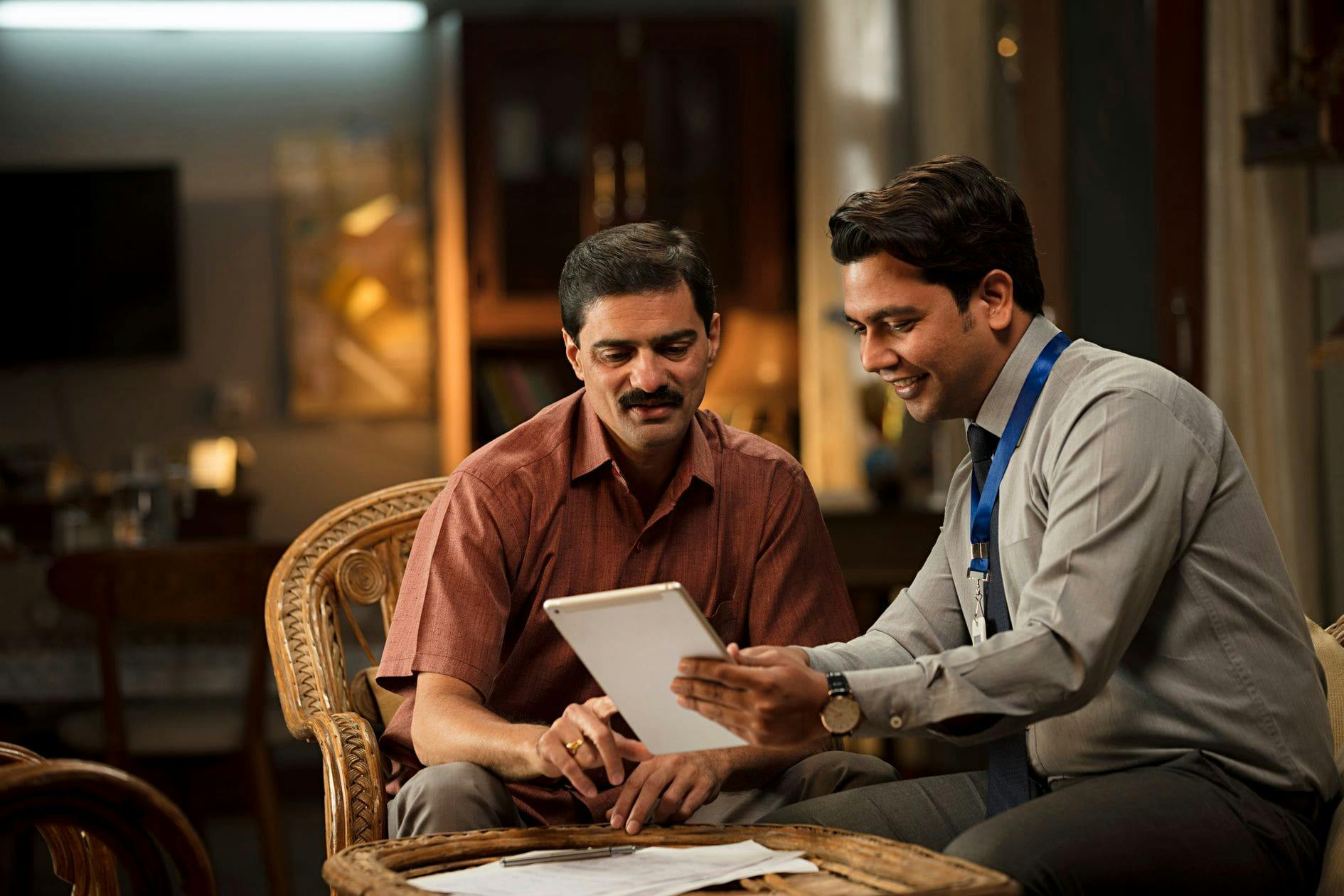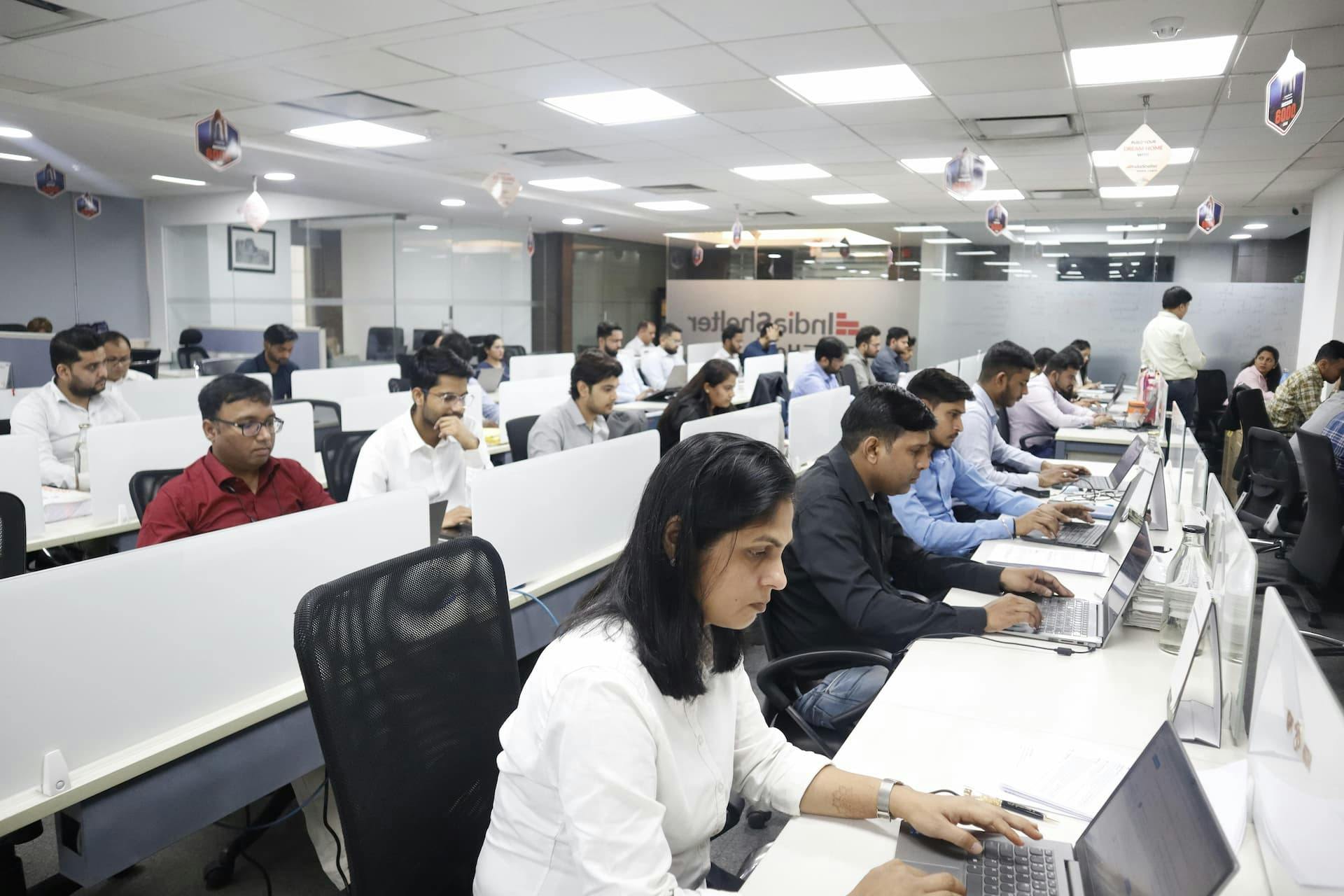Buying Vs Renting: Which Is Better?

Published on :2024-09-27
Introduction
When deciding whether to rent or buy a house in India, it's important to weigh all options. While owning a home provides security, it also comes with high costs and long-term debt. Renting may be cheaper if the housing market is expensive, and you have limited funds.
In this blog, we explore both the options and help you figure out which one's best for you!
The decision depends on various factors which vary from individual to individual. Factors like interest rate, inflation, lifestyle, long term and short-term goals, whether you are self-financing or taking a home loan. As you move forward in this blog, you will find directions for your decision.
Renting A Home
Renting is an easy to go option especially if you are new in the city. It gives you a hassle-free method to move into a house and without any confusion of new rules and documentation. However, renting is a great option only if you want if it's for a short duration, it may not be in your best interest to rent a house if you are thinking of settling down in a city for a long time.
The biggest myth about renting is that you are wasting money every month. This is just a false assumption. You get a place to live when you rent a house. You may not be building an equity or investment when renting a house, but you get a place to live and call your home.
You can plan your financial goals easily when you know how much money is required for you to pay rent each month. In addition to rent, tenants also pay different costs such as utilities, storage, and maintenance fees. These charges are not fixed or mandatory everywhere
One important point to note is that your landlord may increase your rent anytime. This creates uncertainty for you as a tenant. Suppose you are a tenant, and your landlord increases rent suddenly, moving out would be a difficult job. First to find another place to move and then shift. But what if the new landlord also increases the rent. You can't keep shifting your house throughout. Sometimes residential areas have rent ceilings which limit how much a landlord can increase the rent, if at all.
Factors To Consider While Renting A House
Rent: This is the amount you pay to the homeowner for living in his house. Most homeowners would prefer to take a security deposit when you move into their houses. This can vary between 1 to 12 months of your rent. It is a refundable amount when you move out of the house.
Maintenance cost: These are monthly expenses which increase your quality of life at home. For example: security charges and parking space charges.
Owning A Home
Owning a home is a milestone in anyone's life. It means you have a house of your own without any landlord or liability to pay rent every month. Since buying a house is a huge financial expenditure, one can decide to take a home loan for the same. Instead of paying rent, one can pay EMI s to the housing finance company. You can use India Shelter EMI calculator to know your EMI.
Owning a house also builds equity and assets for you. One can count on a house as an investment or a rainy day. It builds credibility to an individual's Personna as well. Once you own a home, you can decorate or upgrade your house according to your own taste. Additionally, you can avail tax benefits when you take a home loan. Buying a house is also a status symbol for an individual.
Key Differences between Buying Home vs Renting Home
Building Equity
When you rent a house, you're not building any equity with it.However when you buy a home you build equity for yourself.
Tax Benefits
Homeowners can always take certain tax benefits. They can take additional tax benefits if they have taken a home loan. All homeowners can take standard tax deductions when paying taxes.
Repairs and Maintenance
A homeowner means you are responsible for maintenance and regular upgradation of the house. These expenses are costly and may or may not increase the overall value of your property.
Time Commitment
Home ownership requires time commitment. For example, you must take care of plumbing to repaint the walls. Owning a home is not as easy as it seems and requires significant attention and time from your side.
What is Rental Yield?
Rental yield means the percentage of the property value received over a year through rental earnings. It is one of the most common methods to calculate the Returns on Investment (ROI) from a property.
The average rental yield in India typically varies between 2% and 3%. For instance, if you own a 2BHK apartment in Delhi worth ₹ 35 lakh with a monthly rent of ₹15,000, the rental yield is 4.86%. This means it would take close to 20 years to pay for the house's actual value through rent, assuming the growth rate of rent and the house's value are the same. In metro cities like Mumbai and Bangalore, the rental yield can jump to as high as 20%.
Conclusion
The decision between renting and buying a home isn’t just about the cost incurred. It also involves long term strategies and financial goals of an individual. Analyse your goals and options you have. Consult a local real estate agent to make a more informed decision.
Feel free to reach out to us for any queries or assistance regarding your housing journey. Happy house hunting!
Related Blogs

2025-12-11
Common Mistakes to Avoid When Applying for a Home Loan in 2026
Planning to take a home loan in 2026? Don’t apply before reading this- learn about the top mistakes many borrowers make and how you can avoid them for smoother approval and lower long-term costs.

2025-07-30
How Green Homes Can Cut Your Electricity Bills by Up to 40%
Discover how simple eco-friendly changes in your home can reduce electricity bills by up to 40% and lower your carbon footprint. Start your green journey today!

2025-07-30
How Much Home Loan Can I Get with a ₹25,000 Monthly Salary?
Wondering how much home loan you can get on a ₹25,000 monthly salary? Find out your eligibility, loan amount, and smart tips to improve approval chances.
Disclaimer: *By contacting IndiaShelter on Toll Free/WhatsApp/Website or any other mode, you authorize our representatives to reach out to you through personal communication via SMS, WhatsApp and phone calls regarding our services. This consent will supersede any registration for any Do Not Call (DNC) / National Do Not Call (NDNC).
© India Shelter Finance Corporation 2024 | All rights reserved
Design with byCyberworx





